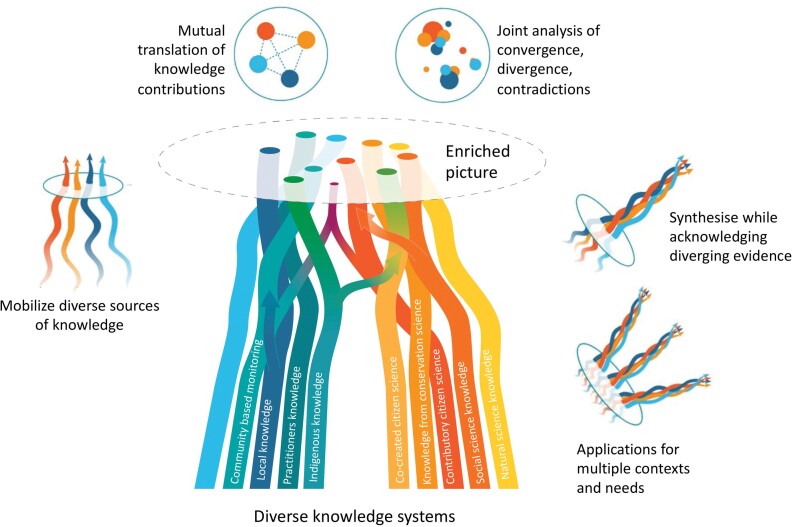Figure 2.
Illustration of a multiple evidence based approach to the use of knowledge for ecosystem management and conservation. Different knowledge systems are viewed as contributing complementary information and insights into a specific issue, creating an enriched picture represented by the circles in the figure. The colored strands represent contributions from different knowledge systems to the topic. Five tasks (to mobilize, translate, analyze, synthesize, and apply knowledge) provide guidance for knowledge collaborations on the basis of respect, equity among actors and knowledge systems, and usefulness for all involved. This entails engaging with actors as knowledge holders, including with the institutions and practices of generating and transmitting knowledge. They may be different than in scientific knowledge systems but nonetheless guide the generation, validity and transmission of knowledge in their respective context. Adapted from Tengö and colleagues (2014, 2017).

